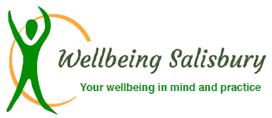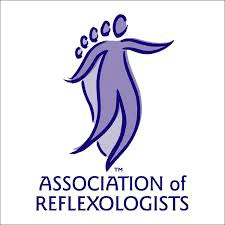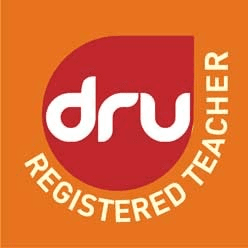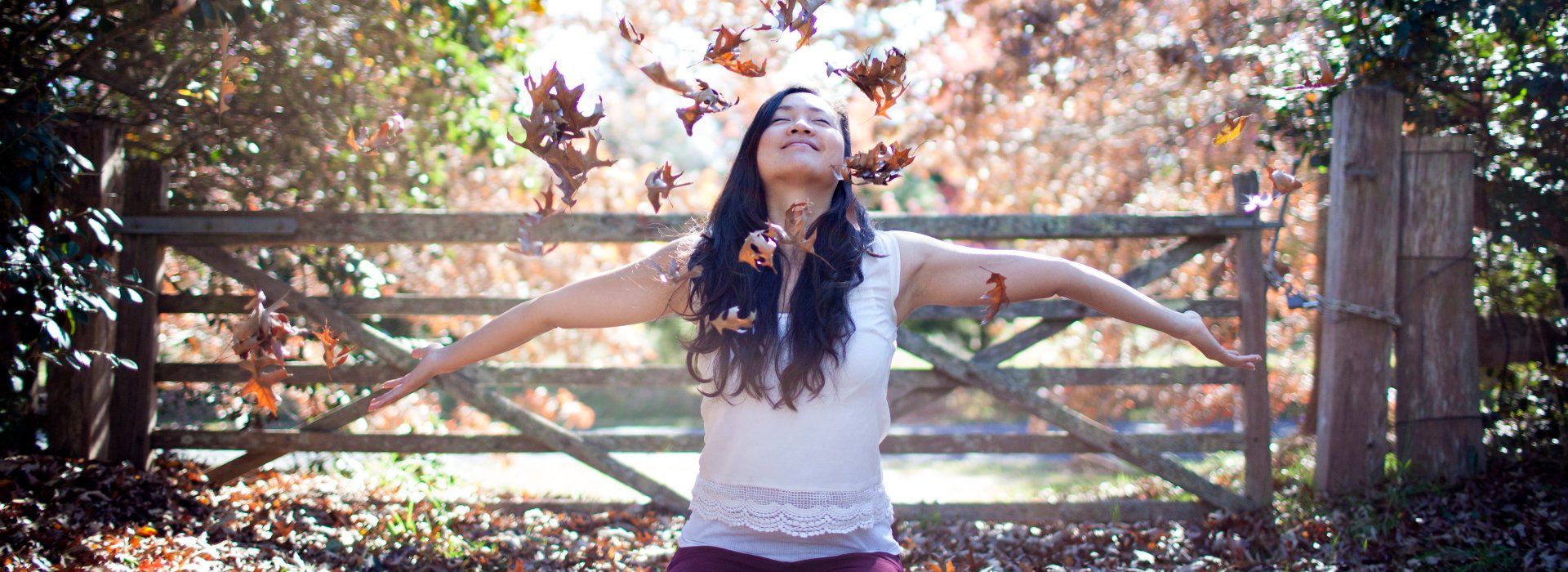
Improve your posture through the
Alexander Technique
Alexander Technique
Rediscover a freedom and ease in movement
The Alexander Technique can help you identify and prevent the harmful postural habits that aggravate or may be the primary cause of stress, pain and under-performance. The way we use and hold ourselves -even in the simplest activities- can interfere with our natural coordination and place undue strain on our body, resulting in such symptoms as backache, headaches or a general lack of vitality. The results of injury, illness and trauma can also contribute to ineffective performance and to unconscious development of damaging postural habits.
We know that if we mis-use a piece of machinery it may cause excessive wear and tear and possibly permanent damage. The chances
are that you don’t leave your heating system full on all day and all night throughout the whole year. You switch it on when it is required and you carefully regulate it according to need and temperature. Do you give yourself the same consideration? One way of managing yourself better could be through the Alexander Technique.
We know that if we mis-use a piece of machinery it may cause excessive wear and tear and possibly permanent damage. The chances
are that you don’t leave your heating system full on all day and all night throughout the whole year. You switch it on when it is required and you carefully regulate it according to need and temperature. Do you give yourself the same consideration? One way of managing yourself better could be through the Alexander Technique.
Individual lessons
In the first lesson, I will take a case history to take into consideration, your state of health, medication status and levels of pain. This will be particularly useful in providing me with a picture of your general physical functioning and assessing initial patterns of misuse. Although patterns of misuse vary from individual to individual, it can be brought down to the ineffective relationship between the head, neck and back. Re-establishing this natural relationship within the “core” of the body provides the structural environment for breathing and other body functions. I will then start teaching you some basic Alexander Technique principles and show you a lying down technique that you can easily use at home to “recharge the batteries” and start making changes in your daily life.
During a lesson, I use gentle hands-on guidance and verbal instructions to help you find ease and balance within yourself in simple movements and everyday activities such as sitting, standing, walking or bending. This enables you to discover the unnecessary tension and muscular effort you put in those basic human movements. You start moving away from effort and you apply your improved use towards more freedom and poise.
The real value of the Alexander Technique lies in being able to apply its principles, by yourself, to your daily activities. No specific exercises, nor special equipment are required. Alexander Technique can be practised wherever you are and is suitable for people of all ages and levels of physical fitness.
During a lesson, I use gentle hands-on guidance and verbal instructions to help you find ease and balance within yourself in simple movements and everyday activities such as sitting, standing, walking or bending. This enables you to discover the unnecessary tension and muscular effort you put in those basic human movements. You start moving away from effort and you apply your improved use towards more freedom and poise.
The real value of the Alexander Technique lies in being able to apply its principles, by yourself, to your daily activities. No specific exercises, nor special equipment are required. Alexander Technique can be practised wherever you are and is suitable for people of all ages and levels of physical fitness.
Learning the Alexander Technique gives you valuable tools for life.
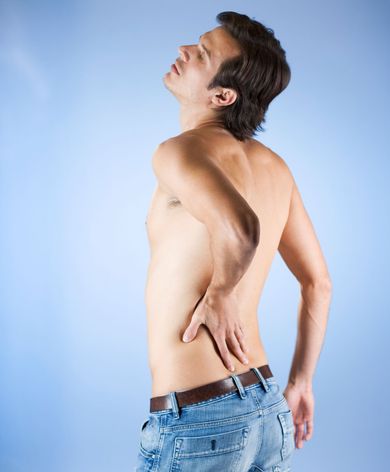
The basis of the Alexander Technique is to encourage you to use awareness to tune into how you are doing things and how much effort
and tension you put in to achieve those activities. You learn to perform those same activities with less tension and strain. Making simple
changes using awareness is possible and lead to greater wellbeing.
Using the Alexander Technique principles and tools can help you:
and tension you put in to achieve those activities. You learn to perform those same activities with less tension and strain. Making simple
changes using awareness is possible and lead to greater wellbeing.
Using the Alexander Technique principles and tools can help you:
- release tension
- improve your posture and balance
- breathe more efficiently
- be more relaxed and yet alert
The Alexander Technique is best taught through a series of one-to-one lessons, tailored to your personal needs. Because the Alexander Technique is not based on doing exercises to strengthen joints or muscles, no particular level of strength or fitness is required. It can be done by anybody at any age, regardless of their level of disability or pain.
Other uses for the Alexander Technique
By using awareness and focus of attention, the Alexander Technique is essentially practical and problem-solving in nature. Its applications are very versatile. Some pupils come because of body pain and stiffness, headaches or migraines, breathing difficulties, voice problems and stress related conditions.
The Alexander Technique is a popular programme for those looking to enhance their personal, artistic, athletic and work performances. The Alexander Technique is taught at music and drama colleges such as the Royal College of Music, RADA, LAMDA, Guildhall School of Music and Drama and The Juilliard School (NY).
It is particularly relevant at any stage of a woman’s pregnancy and after childbirth to help her cope with changes in her body.
It is very useful for people in sedentary work such as computing, studying, driving, etc…
The Alexander Technique can be an integral part of a stress management program and a tailored personal wellbeing programme. It can also be an integral part of disability and pain management and of a rehabilitation programme following an illness or injury.
The Alexander Technique is not a therapy although its application has many therapeutic effects, improving bodily functions overall. It is the study of life life itself and how we manifest life, through thinking, breathing, doing and feeling. Very often referred to as a method of re-education based on awareness and conscious control of the way we move, it has far deeper implications on the mind, body and
consciousness.
The Alexander Technique is a popular programme for those looking to enhance their personal, artistic, athletic and work performances. The Alexander Technique is taught at music and drama colleges such as the Royal College of Music, RADA, LAMDA, Guildhall School of Music and Drama and The Juilliard School (NY).
It is particularly relevant at any stage of a woman’s pregnancy and after childbirth to help her cope with changes in her body.
It is very useful for people in sedentary work such as computing, studying, driving, etc…
The Alexander Technique can be an integral part of a stress management program and a tailored personal wellbeing programme. It can also be an integral part of disability and pain management and of a rehabilitation programme following an illness or injury.
The Alexander Technique is not a therapy although its application has many therapeutic effects, improving bodily functions overall. It is the study of life life itself and how we manifest life, through thinking, breathing, doing and feeling. Very often referred to as a method of re-education based on awareness and conscious control of the way we move, it has far deeper implications on the mind, body and
consciousness.
Scientific research
In 2011, a study of postural tone concluded that the Alexander Technique alters the muscular tension along the spine and hips that supports the body against gravity, reducing stiffness in these areas. (Cacciatore, T.W.; Gurfinkel, V.S., Horak, F.B., Cordo, P.J., Ames, K.E. (1 February 2011. Increased dynamic regulation of postural tone through Alexander Technique training”. Human Movement Science 30 (1): 74– 89.)
A 2008 study found marked improvement in addressing chronic and recurrent lower backback pain with the Alexander technique (Paul Little et al., Randomized controlled trial of Alexander technique (AT) lessons, exercise, and massage (ATEAM, British Medical Journal, August 19, 2008). A subsequent analysis and comparative study of the economic implications concluded that “a series of six lessons in Alexander Technique combined with an exercise prescription seems the most effective and cost effective option for the treatment of back pain in primary care.” (Sandra Hollinghurst et al.,British Medical Journal, 11 December 2008).
The Government’s NICE guidelines state that the Alexander Technique “may be offered to benefit people with PD (or Parkinson’s) by helping them to make lifestyle adjustments that affect both the physical nature of the condition and the person’s attitudes to having PD.
A 2008 study found marked improvement in addressing chronic and recurrent lower backback pain with the Alexander technique (Paul Little et al., Randomized controlled trial of Alexander technique (AT) lessons, exercise, and massage (ATEAM, British Medical Journal, August 19, 2008). A subsequent analysis and comparative study of the economic implications concluded that “a series of six lessons in Alexander Technique combined with an exercise prescription seems the most effective and cost effective option for the treatment of back pain in primary care.” (Sandra Hollinghurst et al.,British Medical Journal, 11 December 2008).
The Government’s NICE guidelines state that the Alexander Technique “may be offered to benefit people with PD (or Parkinson’s) by helping them to make lifestyle adjustments that affect both the physical nature of the condition and the person’s attitudes to having PD.
Marie-Ange qualified as a Teacher of the Alexander Technique under STAT in 1994. Apart from the one-to-one lessons, workshops or series of group classes on the Alexander Technique are occasionally organised. To discuss whether the Alexander is for you, ring 01722 743109 or 07804 041 005.
Please see the documents before for more information on the Alexander Technique:
Professor Little's Guide
Backcare's Guide
NHS Choice's Guide
Please see the documents before for more information on the Alexander Technique:
Professor Little's Guide
Backcare's Guide
NHS Choice's Guide
Testimonials
Iv’e been having Alexander Lessons with Marie-Ange for several years now. Although I have had lessons foe several decades, I am constantly amazed about how her subtle classes encourage me to re-evaluate almost every time we meet. She is the most helpful Alexander teacher I have ever worked with. ME ❨Southampton)
A number of years ago i spent some time with Marie-Ange learning the Alexander Technique. Years later i am still using the techniques that i learnt from Marie-Ange. I learnt to notice what is going on in my body and i am sure that it has reduced pain. When I feel under pressure i find myself focusing on my breathing, bringing me back to the present and ready to put things into perspective. For me the learning process was not without challenges and without Marie- Ange's patience and kindness i would never have stuck with it. Marie-Ange intuitively knew when to push me that little bit further and had a real gift for helping me to help myself. I would wholeheartedly recommend anyone to explore the Alexander Technique with Marie-Ange. S B ❨Salisbury)
I first met Marie-Ange 20 years ago when I was suffering from severe depression and anxiety. Marie-Ange was calm and positive, extremely knowledgeable and professional and the Alexander Technique helped me more than I can ever say. T.B. (Hungerford)
“We had a wonderful normal day afterwards [after 2nd lesson]. You must have noticed how upright he was when he walked to the car! Even when we ate our evening meal, he was upright; normally he is crouched. He also started noticing how he held his cutlery…
We are clear AT doesn't cure Parkinsons. " J. G., Dorset.
I have had quite a few lessons in the Alexander Technique from Marie-Ange and always walk away feeling taller and more easy in myself. She has a knack of teasing out what the important things to work on are, with sensitivity and humour, and keen observational eyes and hands. There’s always much food for thought to follow-up on my own, too, which means the lessons have a longer-lasting effect. (L.K. Salisbury)
A number of years ago i spent some time with Marie-Ange learning the Alexander Technique. Years later i am still using the techniques that i learnt from Marie-Ange. I learnt to notice what is going on in my body and i am sure that it has reduced pain. When I feel under pressure i find myself focusing on my breathing, bringing me back to the present and ready to put things into perspective. For me the learning process was not without challenges and without Marie- Ange's patience and kindness i would never have stuck with it. Marie-Ange intuitively knew when to push me that little bit further and had a real gift for helping me to help myself. I would wholeheartedly recommend anyone to explore the Alexander Technique with Marie-Ange. S B ❨Salisbury)
I first met Marie-Ange 20 years ago when I was suffering from severe depression and anxiety. Marie-Ange was calm and positive, extremely knowledgeable and professional and the Alexander Technique helped me more than I can ever say. T.B. (Hungerford)
“We had a wonderful normal day afterwards [after 2nd lesson]. You must have noticed how upright he was when he walked to the car! Even when we ate our evening meal, he was upright; normally he is crouched. He also started noticing how he held his cutlery…
We are clear AT doesn't cure Parkinsons. " J. G., Dorset.
I have had quite a few lessons in the Alexander Technique from Marie-Ange and always walk away feeling taller and more easy in myself. She has a knack of teasing out what the important things to work on are, with sensitivity and humour, and keen observational eyes and hands. There’s always much food for thought to follow-up on my own, too, which means the lessons have a longer-lasting effect. (L.K. Salisbury)
Call on
01722 743 109 or
07804 041 005
for the Alexander Technique in Wilton.
Marie-Ange Gonzalez, MA, MAR., CNM (Nat.), (Acup.), DPN (Y), CLYL, CLYT
